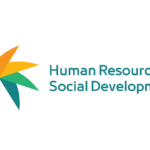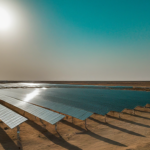
“T-Mobile US Inc. paid roughly twice that amount last year for a share sale that was about half the size of the Aramco offering.”
–Matthew Martin in Bloomberg reports on around $50m in incentive fees paid paid out recently to mostly local underwriters of the 2019 Aramco IPO worth $29.4b. Total fees for the IPO were just over $100m, “a tiny figure by global standards.” [Bloomberg]

“Some of these sites were known to ancient Greek and Roman historians or to travelers in the 18th and 19th centuries. Others have been studied extensively by modern scholars and archaeologists from Saudi Arabia and around the world. Very few, however, have been visited by tourists, and some are unknown even to Saudi citizens.”
–Arab News offers an in-depth report on five historic Saudi sites that are on UNESCO’s World Heritage List. Hail, Al-Ula, Al-Ahsa, historic Jeddah and Diriyah are featured. [Arab News]

“A survey by the British Council in Saudi asked 422 people, including filmmakers, cast and crew members, students, training and education providers about their visions for Saudi Arabia’s future in film: 77% of those surveyed believe that online streaming will be the most important distribution channel for Saudi productions in future.”
–Jennifer Holleis reporting for Deutsche Welle on Saudi Arabia’s developing film industry. [Deutsche Welle]

“The gap between revenue and fiscal expenditure has been so wide since 2015 that the rebound won’t alter the basic fact that governments need to find new sources of revenue.”
–Karen E. Young examines the current rise in oil prices in light of Gulf states’ deficit spending patterns since 2015 and the long-term need to diversify their economies. [Bloomberg Opinion]

“We anticipate solid mortgage and retail loan growth, supported by government efforts to meet Vision 2030 targets and strong demand for housing from Saudi nationals. Over the next couple of years, we forecast that mortgage portfolios will expand by about 30 percent a year.”
–S&P Global Ratings, in a note Tuesday. Domestic credit growth in Saudi Arabia is likely to stay strong in 2021-2022, following the sharp 14 percent year-on-year increase in 2020. [Zawya]

“The failed attempts to target the port of Ras Tanura do not only target the security of the economy and Saudi Arabia. They target the global economy and its oil supplies and the global energy security. The kingdom will take necessary and deterrent measures to protect its national resources to preserve global energy security and stop the terrorist attacks to ensure stability of energy supplies and security of petroleum exports.”
–Foreign Minister Prince Faisal bin Farhan said in Riyadh on Wednesday, days after a missile and drone assault on Saudi Aramco facilities. [Bloomberg]

“Globally, 23.7 GW worth of power purchase agreements (PPA) were signed in 2020, setting a record 18% above the 2019 total. More than one-fifth of those megawatts were in 35 contracts inked with Amazon, which was enough to put the company ahead of Google as the all-time top PPA customer.”
-Writing for Quartz, Tim McDonnell reports on the growth of PPAs by companies committed to utilizing more renewable energy. [Quartz]

“Hydrogen is morphing from a niche power source — used in zeppelins, rockets and nuclear weapons — into big business, with the European Union alone committing $500 billion to scale up its infrastructure.”
–Verity Ratcliffe, writing for Bloomberg Green, examines growing global interest in hydrogen production as well as Saudi Arabia’s ambitious plans to develop it’s own home-grown hydrogen industry. [Bloomberg]

“At the moment Saudi is on a different path from the rest of the world.”
–David Hancock, an analyst at London-based Omdia, sees Saudi Arabia’s theater market as having the potential to be ranked among the top 10-15 territories for box office worldwide by 2024. By then, Omdia estimates there will be 1,400 screens in Saudi Arabia, up from a current count of less than 300 screens in 2020 with more than 600 screens expected in 2021. In 2020 Saudi box office was up 3% to $115 million, bucking the downward trend in the rest of the world. [Variety]

“They had expected sort of a bigger push back from the (Biden) administration but if this is it then the signal is fairly weak…So I don’t see this as being a major impediment to most companies seeking opportunities in the kingdom.”
–Neil Quilliam, managing director at Azure Strategy, a Middle East-focused consultancy, on the recently-released Khashoggi report and U.S.-Saudi business relations. Analysts say the report is unlikely to change investor sentiment towards Saudi Arabia in the absence of U.S. action against the prince. [Reuters]











